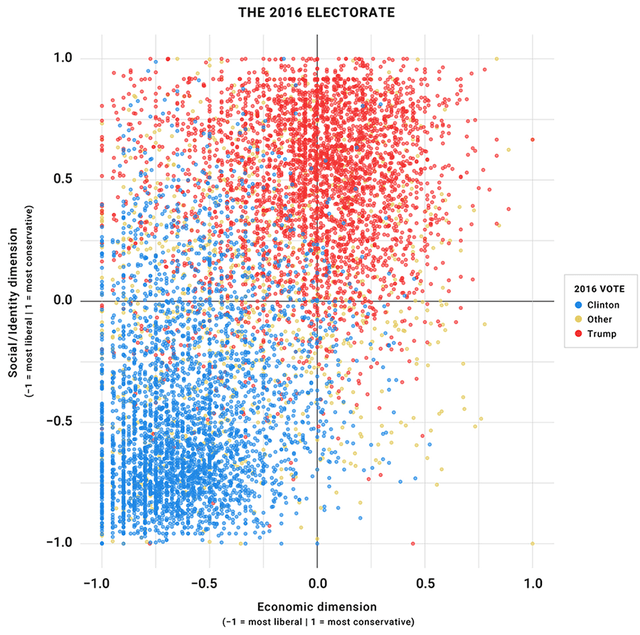- by New Deal democrat
These are hardly tremendous odds against Democratic control [of the Senate].... The real complaint is that the Senate favors small states—which is true—and thus favors Republicans—which isn’t. There’s nothing about a small population that automatically makes a state Republican. Delaware’s Senate delegation is Democratic. Oregon is Democratic. Hawaii is Democratic. New Mexico is Democratic. [NDD: So are Vermont, New Hampshire, Rhode Island, Connecticut, and geographically Maryland, New Jersey, and Massachusetts as well.] Ditto in reverse for big states: Texas is Republican. Florida is Republican. Ohio is Republican. Georgia is Republican.
The problem is that US politics over the past few decades has become less and less about economic issues and more and more about social issues, and that makes elections into moral crusades. And that, in turn, means that compromise is all but impossible. As recently as a decade ago, for example, Senate Democrats unanimously supported the “Gang of Eight” compromise immigration bill. Today it’s unlikely a similar bill would even attract a majority of Democrats. In fact, many of the immigration plans that were floated during the Democratic primary this year came within shouting distance of supporting open borders.
Democrats could obviously win more swing states if they wanted to, but it would mean making compromises on hot-button social issues like abortion, guns, police, religion, immigration, and so forth. Instead, the party has moved left on theseissues and activists are now infuriated that it’s paying a price among center-left voters in swing states.
I don’t agree with everything Drum says above. In particular, I don’t see any evidence that center-left voters are abandoning the Democratic Party. Quite the contrary!
But I very much agree with Drum’s point that compromise is all but impossible when the defining line is social issues.
Here’s a dot-plot of the 2016 electorate, dividing it on both the economic and social-issue scales:

You can see that very few people are actual libertarians, i.e., favoring social liberalism and economic laziness-faire. On the other hand, about 1/3 of the electorate is broadly left economically, but somewhat to very conservative on social issues.
Could the Democratic Party attract more votes by attracting more socially conservative voters? Certainly, but how?
The fundamental problem is that positions on social issues are almost always viewed through the lens of *morality.* They aren’t just “social” issues, they are *moral* issues.
So, how would you feel about compromising on an issue of morality? For most people, I think, that is anathema. If the opposite position is anathema, then there is no ability to get beyond the issue.
If moral issues are the filter through which political candidates must pass before economic and other issues are considered, then it’s obvious from the above dot-plot that more socially conservative candidates are going to have an advantage. And the GOP has made use of that for 50 years.
Still, as the Japanese say, “there are many paths to the top of Mount Fuji.” With the important exception of abortion, which is almost completely an intractable dispute, I do believe there is some room for compromise, by making liberal use of “conscience clauses” where reasonably possible. So long as I am exempted from active participation in a matter that I consider morally repugnant, I can get along with others who hold a contrary view, and we can both support candidates who agree with our points of view on economic issues.
After all, modern liberal society in the West ultimately grew out of the agreement by Protestants and Catholics in the 17th and 18th centuries to stop oppressing and slaughtering one another with wild abandon, and to allow “liberty of conscience” in the civic sphere. If actual religious issues can be overcome, at least most social, i.e., moral, issues in contemporary society can as well.
